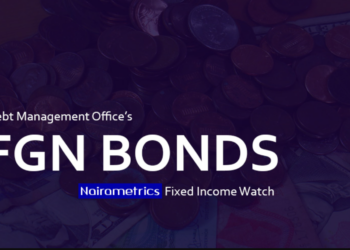Key Highlights
- The increase of excise tax on tobacco from 30% to 50% is part of measures to help control tobacco smoking in the country.
- The health ministry official pointed out that the funding for tobacco control must come majorly from taxation, noting that relevant stakeholders should apply tax measures rightly if they are to address the issues of tobacco control in the country.
- She said there is no safe level of exposure to tobacco smoke and even a brief exposure can be harmful to one’s health.
The Federal Government says it will increase excise tax on tobacco products from 30% ad-valorem to 50% as part of measures to control tobacco smoking in the country.
This was made known by the Head, of the Tobacco Control Unit, Noncommunicable Disease Division, Federal Ministry of Health, Dr. Mangai Malau, on Tuesday, April 19, 2023, at the National Tobacco Control Budget Advocates Meeting in Abuja.
Malau at the meeting, presented a paper titled, “Overview of Tobacco Control Funding/Budgeting in Nigeria: Why Tobacco Control Budgeting and Funding?
He said that presently, the Federal Government imposed a 30% tax on tobacco products but its target was to increase to 50% in order to meet the World Health Organization standard.
He pointed out that the funding for tobacco control must come majorly from taxation, noting there is also a need for relevant stakeholders to apply tax measures rightly if they are to address the issues of tobacco control in the country.
Funding, a major component of tobacco control
- Malau said, “In effectively controlling tobacco and tobacco products in Nigeria, funding is a critical component. The WHO Framework Convention on Tobacco Control recognises this and clearly stipulates it in Article 26.
- “It states that parties shall provide financial support in respect of its national activities intended to achieve the objective of the Convention, in accordance with its national plans, priorities and programmes.
- “It is also important to state that funding is a major provision of the National Tobacco Control Act.
- “Section eight of the Act provides for the Tobacco Control Fund, which shall be used to fund tobacco control activities programmes and projects.’’
According to him, this meeting is therefore important as it will seek better funding for tobacco control, in order for Nigeria to meet the objectives of the WHO FCTC and the NTC Act.
- He said, “Tobacco use and exposure to second-hand smoke is a leading cause of mortality, morbidity, disability and impoverishment in the world.
- “It is the greatest risk factor for non-communicable diseases like hypertension, stroke, cancers, diabetes and chronic obstructive pulmonary diseases.
- ‘’WHO said tobacco causes more than eight million deaths annually around the world, with more than seven million of those deaths as a result of direct tobacco use.
- “And about 1.2 million resulting from non-smokers being exposed to second-hand smoke.’’
He said that tobacco smoke contained over 7,000 chemicals, of which hundreds were toxic and about 70 are known to cause cancer.
- Malau added, “Also, there is no safe level of exposure to tobacco smoke and even a brief exposure can be harmful to one’s health.
- “Concerned about the threat from tobacco, Nigeria signed and ratified the WHO FCTC, in 2004 and 2005 respectively. In 2015, the National Tobacco Control Act was enacted and its Regulations were passed in 2019.’’
What you should know
- In a related development, the Federal Government had last year announced its new tax regime of an initial N4.20 kobo on tobacco products which was expected to take off from June 1, 2022. This was in line with its earlier projection of enhanced revenue mobilization while curbing illegal product imports into the economy.
- The Director of Technical Services, Federal Ministry of Finance, Fatima Hayatu who stated this, referred to the tobacco industry as a powerful one, while assuring that the Ministry is committed to checkmating illicit flow of the product into the market.
- Hayatu noted the taxation on a stick of cigarettes was N2.90kobo but has now increased to N4.20kobo, which was in response to ECOWAS recommendation of 0.02 Cents per stick of cigarette which, at the current exchange rate, would give N8.40kobo.





















